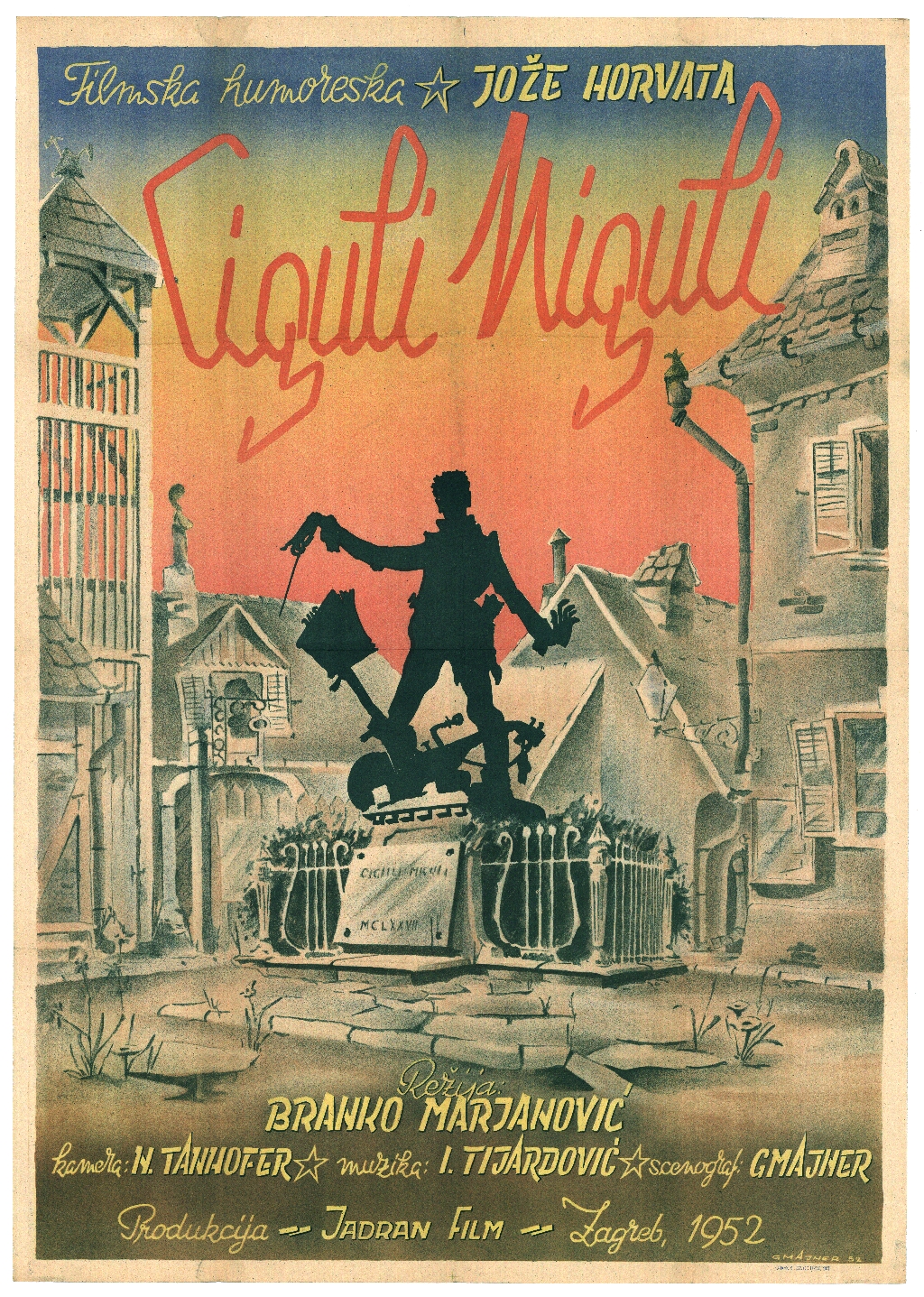The communist government established in Yugoslavia/Croatia after World War II actively used culture and the arts to further its political and ideological objectives (Šarić 2011, p. 116). The imposed direction in culture and the arts was socialist realism. Cultural and artistic creativity that did not comply with the criteria imposed by the Communist Party was subjected to political critique (Šarić 2010, p. 393). The most important goal set in culture was the “people's enlightenment.” Besides dealing with cultural backwardness, by widening the network of cultural institutions and the range of users, it also entailed the elimination of any remnants of ideological opposition, providing (re-)education in the socialist spirit and engendering an awareness of the meaning and advantages of the socialist system (Beus 2016, p. 254).
To achieve such objectives, a branching system of Party and state bodies, mass political organisations, cultural-educational and cultural-artistic associations was established (Spehnjak 2002, p. 166). Supreme authority in implementation of cultural policy was reserved for Party bodies, especially the Agitation and Propaganda (Agitprop) Department of the Central Committee of the Communist Party of Yugoslavia (CC CPY) and equivalent bodies in the republic-level Party committees. Furthermore, state authorities formally charged with the administration of cultural and artistic activities and organization and oversight of cultural and artistic organisations, were established.
The new communist regime recognized film as very useful media for the transmission of political and ideological messages, i. e. “people's enlightenment” in the socialist spirit. Therefore, in spite of the state's difficulties in the early post-war years (food shortages, reconstruction of war-torn areas, etc.), state cinematography in Yugoslavia received significant support.
Under the aegis of Agitprop, the Theatre and Film Section was in charge of the motion picture industry (Šarić 2010, p. 391; Lučić 2015, p. 21). Under formal state administration, Yugoslav cinematography was organized by the state film company and its subsidiaries in the federal units until June 1946. After reorganisation, the Cinematography Commission of the Government of Federal People's Republic of Yugoslavia was established with the intent of functioning as the supreme state administrative body responsible for the development of Yugoslav cinematography. It included a special artistic advisory council charged with the approval of screenplays and the selection of production teams for specific screenplays (Lučić 2015, p. 17-19). Besides proposed themes and screenplays, draft versions of completed motion pictures were sent to the federal Cinematography Commission for verification and authorisation (HR-HDA-309. Cinematography Commission of the Government of People's Republic of Croatia, file conf. 38/1948). In April 1949, the Film Review Commission was also established within the federal Cinematography Commission. It continued the censorship of motion pictures for public consumption conducted in the immediate post-war period by the state motion picture company’s own censorship board (Dojčinović s. a., p. VII).
In the federal units, cinematography commissions were established within the republic-level governments to perform such activities. The General Secretariat of the Government of the Federal People's Republic of Yugoslavia sent instructions on this matter to all republic governments on 13 May 1947 (HR-HDA-309. CC of the Government of PRC, file conf. 395/1947). In a letter dated 4 September 1947, the federal government’s Cinematography Commission instructed the Education Ministry of the People's Republic of Croatia to organise the Artistic Advisory Council as soon as possible, which would then transition into the Cinematography Commission after its establishment. The instructions explained that this advisory council, “composed of the best writers, critics, visual artists, composers and architects, is tasked with advising the Cinematography Commission in the preparation of annual production schedules for film companies, evaluating motion picture screenplays, delivering opinions on test recordings of actors and raw edited films, and submitting final assessments of completed domestic films” (HR-HDA-309. CC of the Government of PRC, file conf. 38/1948).
The Cinematography Commission of the PRC Government was established by the Directive adopted on 20 August 1947. Its formal authority encompassed administration of cinematography and motion picture distribution in Croatia, the preparation and development of cinematography and motion picture distribution, oversight of state motion picture production and distribution companies, training and specialization of qualified personnel (Narodne novine [Croatia’s official journal], no. 86, 1947). In the performance of such tasks, the Cinematography Commission regularly consulted the federal Cinematography Commission and the Croatian Communist Party’s Agitprop Department and acted on their instructions. The Commission was active until January 1951, when its activities, except operational administration over film companies, were assumed by the Croatian Science and Culture Ministry. Operational management of film companies was transferred to these companies and to economic associations in film and cinematography companies, according to specific regulations (Narodne novine, no. 2, 1951).
The Cinematography Commission's preserved documents testify to control over the motion picture production exercised by the communist regime established in Yugoslavia/Croatia after the Second World War. Such control was manifested through Party and state management of motion picture production companies (Jadran film; the film distribution company; Nastavni film), approval of screenplays, supervision of the import and distribution of motion pictures for screening in cinemas, and verification of the ideological suitability of qualified personnel (directors, producers, film editors, actors).
The collection was transferred to the Croatian State Archives in Zagreb on an ex officio basis from the government of the time, the Executive Council of the Parliament of the Socialist Republic of Croatia, in 1988. The documents are publicly available, without any particular restrictions. They were used in recent research such as the master's thesis Ideološka tranzicija filmske kulture u Hrvatskoj od 1945. do 1948. (Ideological transition of film culture in Croatia from 1945 to 1948) written in 2015 by Renata Lučić at the Faculty of Humanities and Social Sciences of the University of Zagreb.

